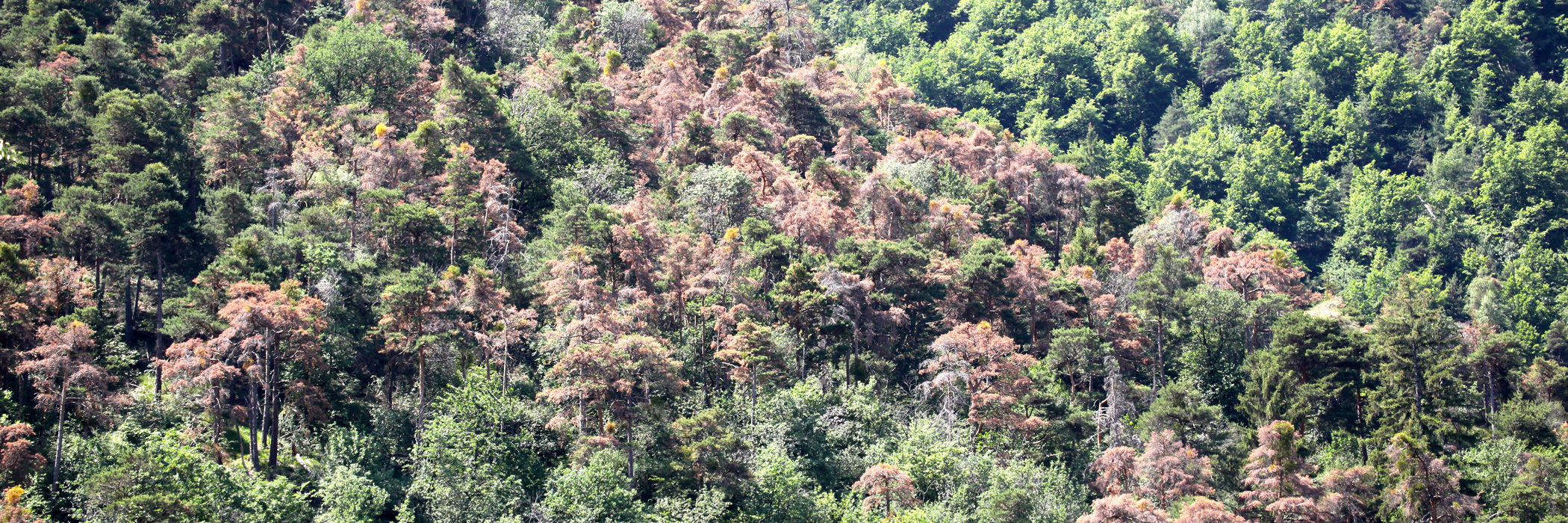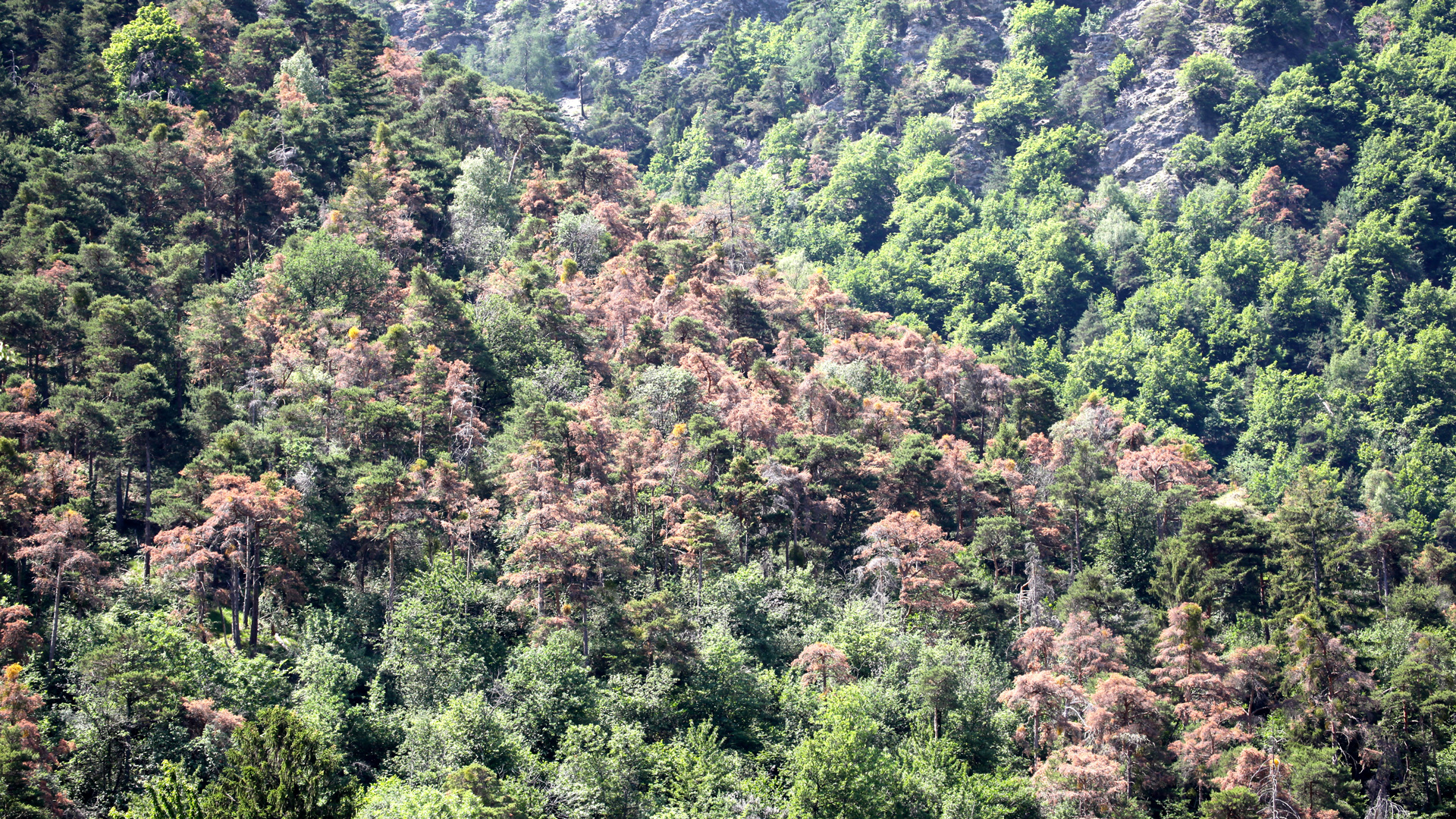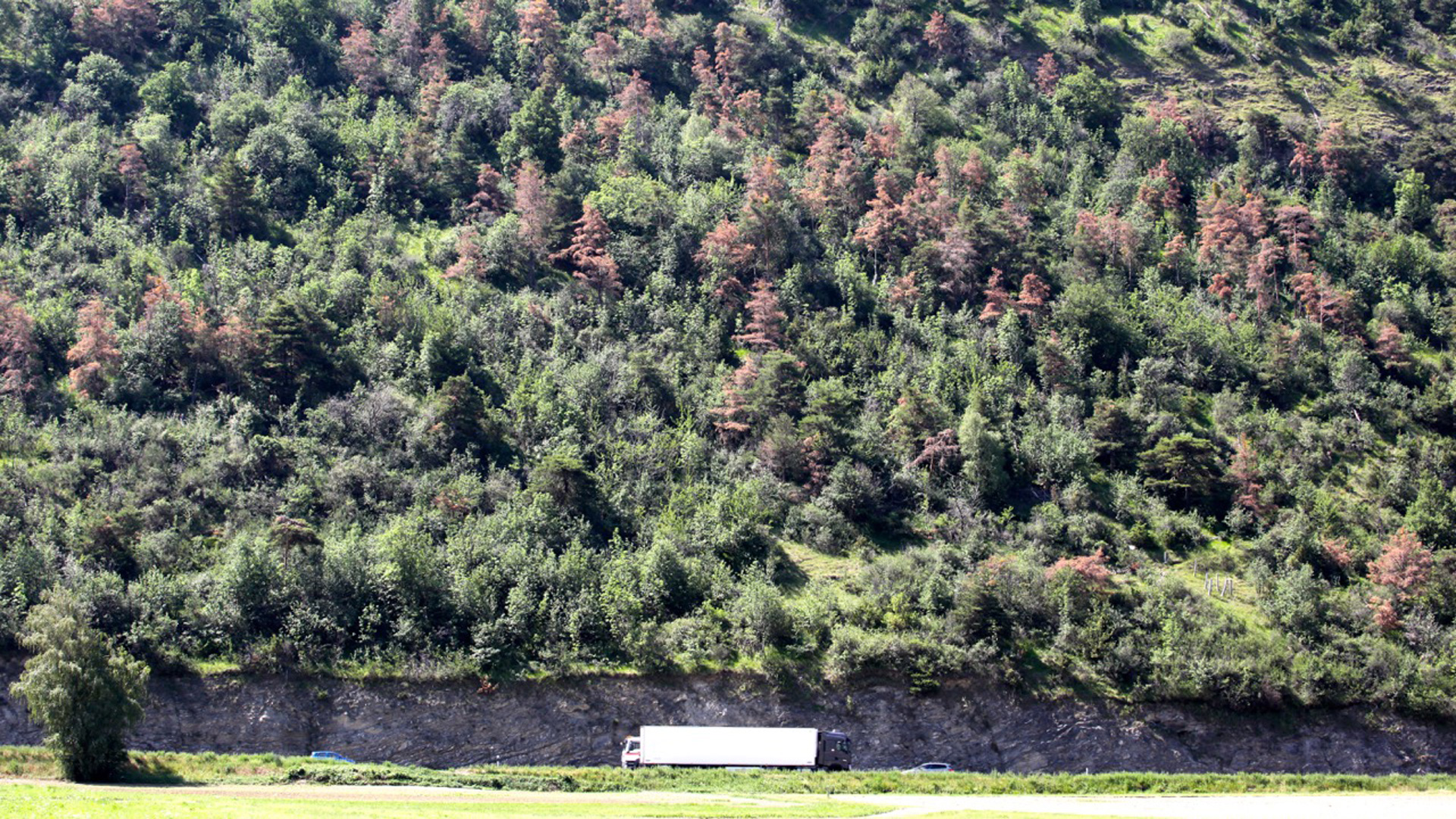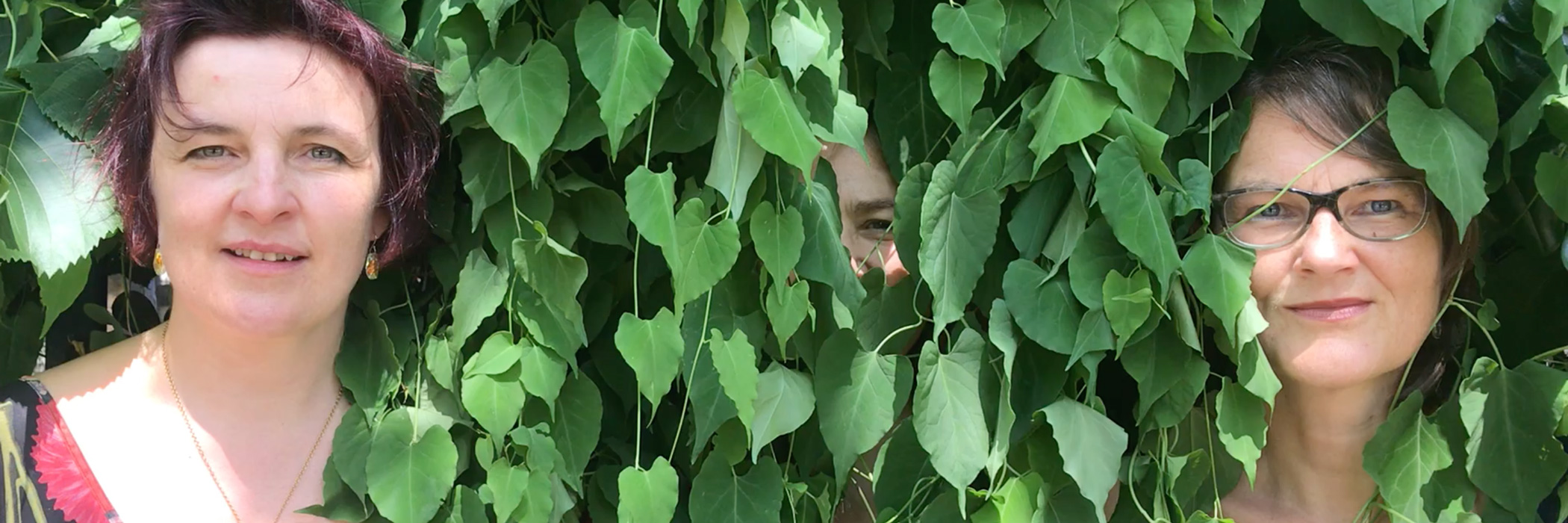Ecodata – Ecomedia – Ecoaesthetics
The Role and Significance of New Media, Technologies and Technoscientific Methods in the Arts for the Perception and Awareness of the Ecological.
The SNSF funded research project Ecodata–Ecomedia–Ecoaesthetics investigates new media, technologies and technoscientific methods (registering, collecting and interpreting data) in the arts in view of understanding their role and significance for the perception and awareness of the ecological. It intends both to bring the question of the technological into the ecological arts and to bridge the gap between them and to analyse current aesthetic idioms in the (techno-)ecological arts. The project is composed of two main parts: theory (analysis of various ecomedia art projects) and practice (aesthetic research relative to the alpine forest Pfynwald).
Assuming that there is no escape from technology in our technosphere, the belief in technologies as tools in relation to information and potential assistance is widespread in both technophile and critical discourses of the Anthropocene. Embracing the paradox and connecting to techno-scientific methods of observing the world, many artists use technologies as sensors and methods, such as Big Data, to get in touch with what has been unknown for a long time. They try to ‘translate’ (i.e. making visible or audible) earthbound signals into human perception, in order to deliver information and establish new relations between non-humans and humans. But what exactly do ecomedia and ecodata deliver or narrate, and to whom do they do this? How do they affect us? Do they trigger care, solidarity, and empathy, as many scholars state? What kind of experiences are possible if a forest, the soil, the air turns out to be a contingent and relational techno-organism, dependent on various actors? And what happens, if the audience is no longer human only, but interspecially-correlated? How does art and its idioms cope with these challenges?
The project is composed of a theoretical and a practice part. In the theoretical part, project leader Yvonne Volkart analyses a number of international ecomedia projects. In scrutinizing their aesthetic idioms, she develops a techno-eco-aesthetics of relationality and care that goes beyond the technological.
In the practice part, the artists-researchers Marcus Maeder, Rasa Smite and Aline Veillat develop aesthetic projects relative to the alpine forest Pfynwald. This forest in the Valais (southwest Switzerland) has been under close surveillance by natural-scientists for more than 25 years. Systematic experiments with irrigation and their close observation by the natural-scientists characterize the Pfynwald not only as an outdoor laboratory, but also as one of the unique sites in the world, delivering relevant data regarding the effects of climate change on the viability of forests. The artists-researchers work in close cooperation with the scientific institute WSL. The theoretical and practice parts are closely intertwined, trying to challenge the dualism of theory and practice and so working towards an aesthetics of theorypractice or practicetheory. In short, the project tries to establish a multifaceted artefactual poetics of the more-than-human.




